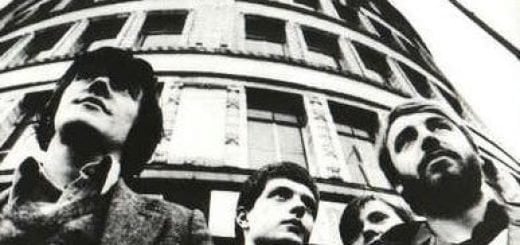Colony by Joy Division: Lyrics Meaning – Unveiling the Dark and Eloquent Tapestry of Ian Curtis’s Mind
Lyrics
The sound from broken homes
We used to always meet here
As he lays asleep, she takes him in her arms
Some things I have to do, but I don’t mean you harm
A worried parent’s glance, a kiss, a last goodbye
Hands him the bag she packed, the tears she tries to hide
A cruel wind that blows down to our lunacy
And leaves him standing cold here in this colony
I can’t see why all these confrontations
I can’t see why all these dislocations
No family life, this makes me feel uneasy
Stood alone here in this colony
In this colony
In this colony
In this colony
In this colony
Dear God in his wisdom took you by the hand
God in his wisdom made you understand
God in his wisdom took you by the hand
God in his wisdom made you understand
God in his wisdom took you by the hand
God in his wisdom made you understand
God in his wisdom took you by the hand
God in his wisdom made you understand
In this colony
In this colony
In this colony
In this colony
Joy Division’s ‘Colony’ is not just another track in the bleak and powerful repertoire of the iconic post-punk band; it is an intimate excavation into the psyche of its troubled lead singer, Ian Curtis. The song, found on the 1980 album ‘Closer’, resonates with haunting imagery and a chilling embrace of discomfort that has both confounded and attracted listeners for decades.
Despite the sparse, jagged instrumentation, the lyrics of ‘Colony’ carry a weight that seems to transcend the song itself, burgeoning with themes of isolation, disenchantment, and the struggle with inner and outer demons. Let’s delve into one of Joy Division’s most enigmatic offerings, decoding the cryptic magnetism that has solidified ‘Colony’ as a timeless piece of the band’s legacy.
An Aching Cry from the Precipice of Alienation
The opening lines of ‘Colony’ whisper truths of a fractured domesticity, wherein the rituals of connection have been tainted by the specter of abandonment. ‘A cry for help, a hint of anesthesia’ suggests a numbness required to weather a familial tempest, hinting at the deeper pain lurking beneath the song’s surface. The broken homes become representative of the larger societal decay, echoing the sense of disconnection that permeated the late 70s and early 80s in Britain.
Curtis navigates this landscape of detachment with introspective resolve, allowing listeners to swim in the ambiguity of his words. The juxtaposition of the act of meeting amidst this desolation, and the imagery of an individual sleeping unaware of the sacrifice being made on their behalf, mirrors the existential duel between love and oblivion.
A Harsh Gaze Upon the Disillusioned Youth
The ‘worried parent’s glance’ and the ‘kiss, a last goodbye’ are powerful visual strokes that paint the all-too-familiar picture of a young individual being thrust into an unforgiving world. ‘Colony’, in this light, becomes an anthem for the dispossessed, the ones sent into life’s battles armed with nothing but a hastily packed bag and unshed tears.
Curtis surmises this as ‘a cruel wind that blows down to our lunacy,’ suggesting that it is not just nature’s hand but our own collective madness that ushers in this sentience of sorrow. The song cements a historical perspective of struggle, contextualizing the personal within the broader strokes of generational anguish.
A Pulse of Discomfort in the Heart of Dislocation
Addressing the direct and abrasive confrontations life throws at the individual, ‘Colony’ makes no attempts to sugarcoat or offer reprieve. Curtis’s stark inquiry, ‘I can’t see why all these confrontations,’ drives the narrative into a sense of unease, of deeply felt dislocations from those critical institutions like family and community.
It is within this admittance of unrest that Joy Division positions itself, not as a harbinger of doom, but as a reflective surface unflinchingly presenting the emotional and social fractures of its time. Standing ‘alone here in this colony,’ we find Curtis not only secluded by circumstances but also by his personal battles with depression and the encroaching symptoms of his epilepsy.
The Unshakable Echo of ‘In this Colony’
Repetition is a powerful literary device, and ‘Colony’ employs it with vehement intensity. The line ‘In this colony’ repeats like a mantra, a tethering force that binds the themes and the listener to Curtis’s vision. The colony, then, is no longer a place but a state of mind, a symbol of the collective isolation felt by a generation.
Curtis invites the audience to consider their own colonies, the mental and emotional landscapes that define their battles and triumphs. This is a call to introspection, to understand one’s place within the myriad colonies we inhabit — be they social, familial, or inner constructs.
The Divine Irony of Understanding
The references to ‘God in his wisdom’ at first seem out of place within the bleak terrain of ‘Colony’, but they offer a darkly ironic resolution. Curtis’s words indicate a sublime deliverance or peace achieved only through hardship and struggle, a cruel joke played by the divine on humankind.
This closing refrain burrows into the concept of enlightenment earned through suffering, a common thread in many spiritual and philosophical teachings. But coming from Curtis, known for his agnostic musings and internal chaos, it reeks of satire — an acknowledgment of understanding as a mirage, perpetually out of reach in this earthly colony of ours.








